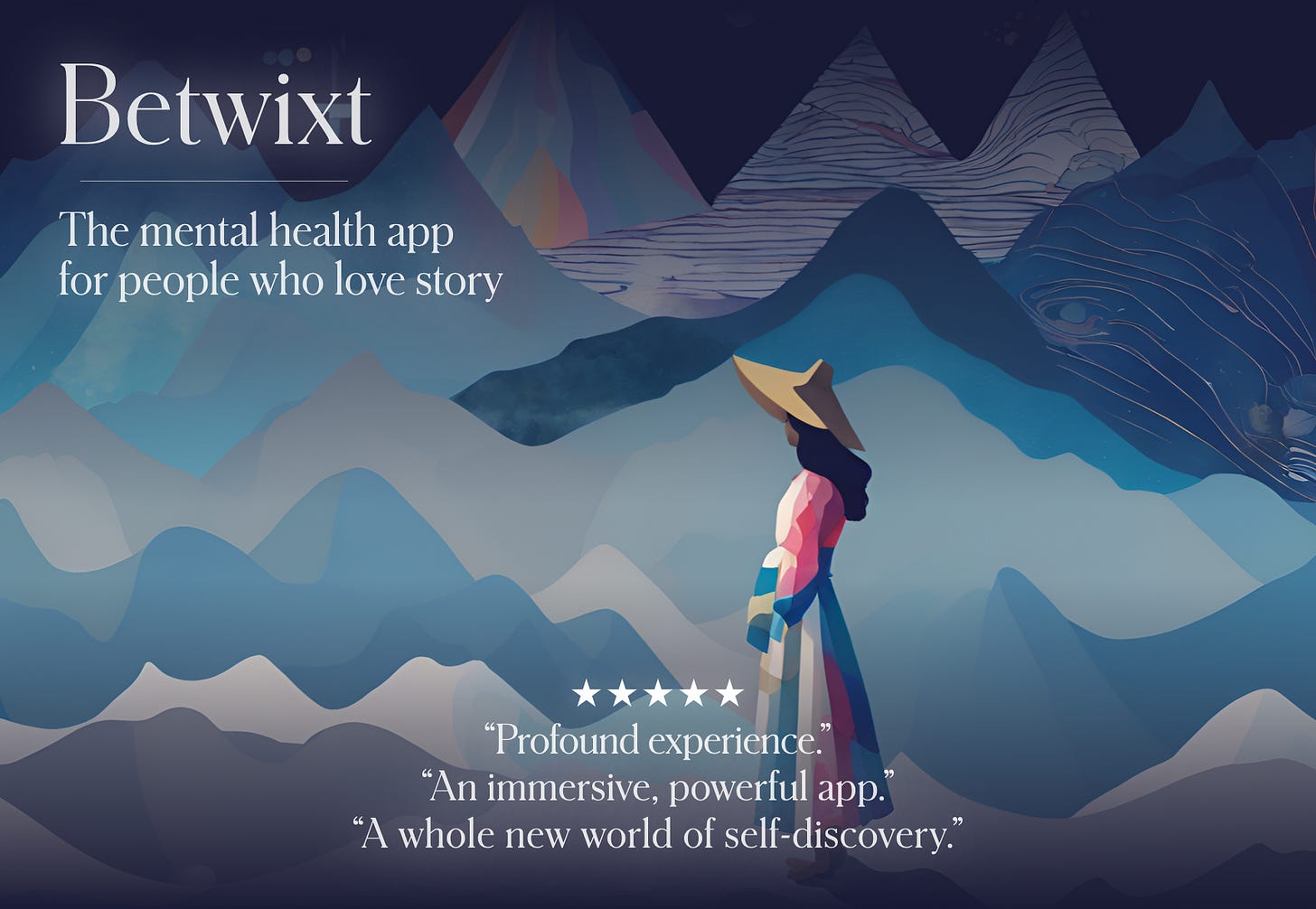A self-reflection masterclass
This one simple word makes the difference between self-awareness and anxious self-deception
You can listen to the article on TikTok, Instagram or YouTube.
***
How well do you actually know yourself?
This article is about how the type of thoughts you think can shine a light on whether you're developing genuine self-awareness when you self-reflect, or whether you're more likely to be sending yourself on an anxiety-inducing wild goose chase.
I would like you to take a moment to picture these three scenarios.
First, imagine you wake up feeling particularly anxious one morning. What's the first question you'd ask yourself in order to understand what's going on? Pause now and write down whatever comes to mind first because you'll need your exact wording later.
Next, imagine that a colleague in a meeting seems to be acting in a hostile way towards you. You can't ask them about it just yet, so what question do you ask yourself while the meeting continues in order to feel like you're getting on top of it? Again, write your first thought down.
Last scenario: imagine you're feeling dissatisfied with your work (or some other pursuit). To understand this feeling, what's the first question you'd ask yourself? Write it down.
When trying to understand something about ourselves, most of us start with the word "why".
We wonder…
“Why do I feel this way?”
“Why did I say that?”
“Why aren’t I happy in my relationship?”
“Why is honesty so important to me?”
We ask “why?” in order to find the truth. But while this works for external problems like "why did my business make less money this month than last?", when it comes to questions about our own, personal inner experience, "why" questions tend to lead us away from truth or usefulness by sending us down an introspective rabbit hole made of rationalisations.
To get a sense of how that happens, let me give you a brief overview of a seminal social psychology experiment conducted in the mid ‘70s on the nature of human decision-making.
The wisdom of pantyhose
Note: This study is old and its method probably wouldn't meet the more rigorous modern standards, but it's often cited regardless because it paints such a vivid picture.
Subjects were stopped in a shopping mall and asked to judge which of four pairs of nylon stocking pantyhose – or tights, if you're British – were of the best quality. What they weren't told was that all four pairs were identical. When they picked a favourite, these people attributed their decision to the knit, weave, sheerness, elasticity or workmanship of the stockings. Of course, these reasons were fabricated (excuse the pun). But there was something influencing their choices because the choices weren't randomly distributed across the four pairs – and the key factor turned out to be recency bias.
These identical pairs of tights were displayed equally spaced, hanging from clothing racks and, moving from left to right, 12% of the subjects judged the first stockings to be the best quality, 17% chose the second pair, 31% the third, and 40% picked the fourth pair furthest to the right—that is, the most recently viewed item. However, none of the subjects mentioned the positioning of the tights when justifying their decision, of course, and even when they were directly asked about positioning as a factor, only one said it could have influenced their decision.
In other words, when we don't know the true cause of a thought, feeling or behaviour – and most of the time, we can't know this because the unconscious mind is absolutely full of information that we don't really have conscious access to – we will make up a reason, buy into it completely and then even when presented with the real reason, we won't be able to tell the difference between that and our fabrication.
And this is exactly what we do with the answers to our "why" questions: we come up with an answer just for the sake of having one – and anything plausible will do. Then, to make matters worse, we stress over the thing we just made up.
“Why X?”
“Maybe Z…”
“BUT WHY Z???”
Basically, rather than providing a complete answer, "why" is much more likely to just get us spiralling, anxiously, through more and more "why" questions.
If not "why", then…?
So "why?" feels productive, sometimes even powerful. But it is not. And if that’s the case, how are we supposed to get to the bottom of personal problems?
According to psychologist Tascha Eurich's research, only 10% to 15% of people actually qualify as self-aware, and these people very rarely use the word "why" when introspecting. Thousands of interviews with such self-awareness unicorns were transcribed and the word "why" was uttered less than a hundred times. The word "what", on the other hand, was used thousands of times – and often in the moments when the majority of us would reach for "why".
For example, when struggling in a relationship, instead of asking, "Why am I not getting on with my partner?", a self-awareness unicorn might ask, "What do I need to do differently to improve this relationship?"
Instead of asking, "Why am I not satisfied with my job?", they might ask questions like these:
"What's important to me about my work?"
"What do I find most enjoyable or meaningful?"
"What do I need to do to bring those things to the forefront?".
Or when trying to understand an emotional problem like anxiety, instead of asking "Why am I so anxious?" – and I think we all know exactly how that goes – a self-awareness unicorn might ask, for example, "What are the specific contexts that trigger my anxiety, and what do those things have in common?".
What-questions tend to lead us towards actionable, specific or factual information, as opposed to just more why-questions and anxious spiralling.
"What?" gets you moving
But bear in mind that this isn't actually about the word "what", and you can easily use "what" ineffectively – "what the hell is wrong with me?", for example, or "what did I do that for?" These are "why" questions in disguise.
The real reason "what" tends to work better than "why" when it comes to self-reflection boils down to the fact that we just don't have the answers readily available, so no amount of naval-gazing will get us there. Personal change happens through movement and action.
As human beings, we figure things out as we go. Yes, we'll make mistakes, and our "what" answers won't always be right the first time, but we will find the things that work by getting out there and doing stuff, learning as we go. And "what" gets us to do that much, much better than "why".
So my question for you right now is this:
Where in your life do you feel stuck, confused or discontent, and what are the "what" questions that you need to ask about that?
Thank you for reading!
We’re Hazel (ex boxer, therapist and author) and Ellie (ex psychology science writer). We left our jobs to build an interactive narrative app for self-awareness and emotion regulation (Betwixt), which you can try on Android here and on iOS here.






Damn this is excellent, thank you!
I will hold this whole idea front of mind as I pay attention to how I’m going about my day.
I feel stuck with a body symptom that, while it has to be mechanically dealt with of course, is the result of a holding pattern I’m working to release. I’ve been able to identify the pattern but still catch myself asking why is this happening!
I never use Why questions and rarely What questions. I do find I dissociate very quickly, so I try to describe the situation before that happens. If I can do that, then useful questions happen, usually How.